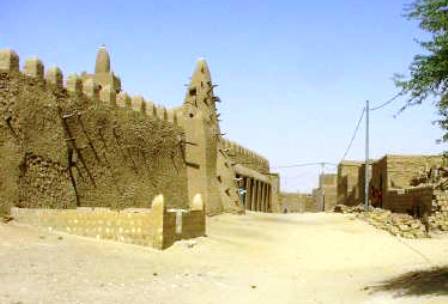Avoiding the Shadows of Education
|
I am an enthusiastic proponent of world travel. As our world gets smaller and national boundaries morph into trading blocks, Americans need to increase their international travel. We need to do what aristocratic Englishmen did after their university studies. In the 18th century, it was fashionable to go on the Grand Tour of Europe having successfully completed their formal education. Travel to the Continent was the educational capstone for their academic pursuits. As the British Empire got larger, many of these post-graduate travelers went beyond Europe to include far flung destinations around the world. While emulating Englishmen may seem at first glance to be an unnecessary expense, I wish to present the argument that it is critical for all Americans to travel whether it is the Grand Tour of Western Europe or to go to more remote locales like Asia, Africa, South America, or Oceania. Why would traveling in the post 9/11 world be desirable? Why not stay safely at home? Some skeptics might question the benefits that could be accrued by spending time and money traveling to faraway destinations? Besides, you can buy the souvenirs from anywhere in the world at any mall in America and do so without having to lug them around with you on a trip. Before I answer these questions, I want to remind you of the Greek philosopher, Plato and his Allegory of the Cave. Plato tells us of slaves confined to seats facing a wall deep in a cave. They can't move around and can only stare forward watching shadows move across the wall. The slaves think that these shapes and forms are real, but they are merely the shadows created by the light behind them. The slaves have confused the shadows with reality. A couple of months ago, I taught a survey course in Chinese/Tibetan history. As a part of the class, we spent a couple of weeks in both China and Tibet. The students completed nearly the entire course before they left the States. They had read the text, written essays, and mastered the material. To that point, this course was just like all of their previous university classes. They knew the material; or did they? Then off we went to China. After spending several weeks in country, the difference between their knowledge pre and post trip was the difference between looking at the shadows of reality and really knowing reality as Plato pointed out. The ability to see, smell, feel, sense, and interact with another culture gave them an entirely new perspective on the course. Every student commented many times on how much more they got from the course once they walked around the Forbidden City, climb the Potala, viewed the Terra Cotta Warriors, or met local people. I have been involved in education for nearly all of my life as either a student or teacher. I have studied and taught overseas and know firsthand the educational value of travel. The job of a teacher is to help students to see and to understand the world in which they live. It is the most rewarding thing that I do. However, the gap between knowing and really KNOWING is huge. The task of a teacher is to facilitate filling in some of that gap between memorizing material and incorporating knowledge into their lives. Travel is the quintessential way to accomplish this educational task. Whether they go overseas to study or travel, these international experiences will change their lives and the way they see the world for the rest of their lives. However, learning isn't relegated to schools or students. Those that have long ago put away their textbooks need to continue to learn by submerging themselves in other cultures. To learn through travel requires both time and money, both of which none of us have enough. Travel is expensive and may seem an unnecessary indulgence. However, not knowing and ignorance is far more expensive. If more Americans were familiar with the Middle East, we might see things differently as well as vote differently. Set aside some time this coming weekend to watch a travel video that you can pick up at your local library. If your background is German, get a video about Germany. Or be more adventuresome. I am presently planning a trip to Africa, which will include Timbuktu. I bet that I am the only person that you know who will have traveled to both Katmandu and Timbuktu.
What would be the most exotic destination that you could imagine visiting? Make plans to go there before it is too late. I have Patricia Schultz's book, 1,000 Places To See Before You Die. It is her list of places that she deems important to see in ones lifetime. This is a cautionary comment-if you wait until you have the time and money, you might have waited too long. However, worst of all, you will have lived your life erroneously thinking that you knew reality when you really didn't. Listen carefully. Can you hear the voice? Listen. It is Plato saying to you, "Get up and leave the cave. The real world awaits your presence, and you will be surprised at what you will learn."
|








